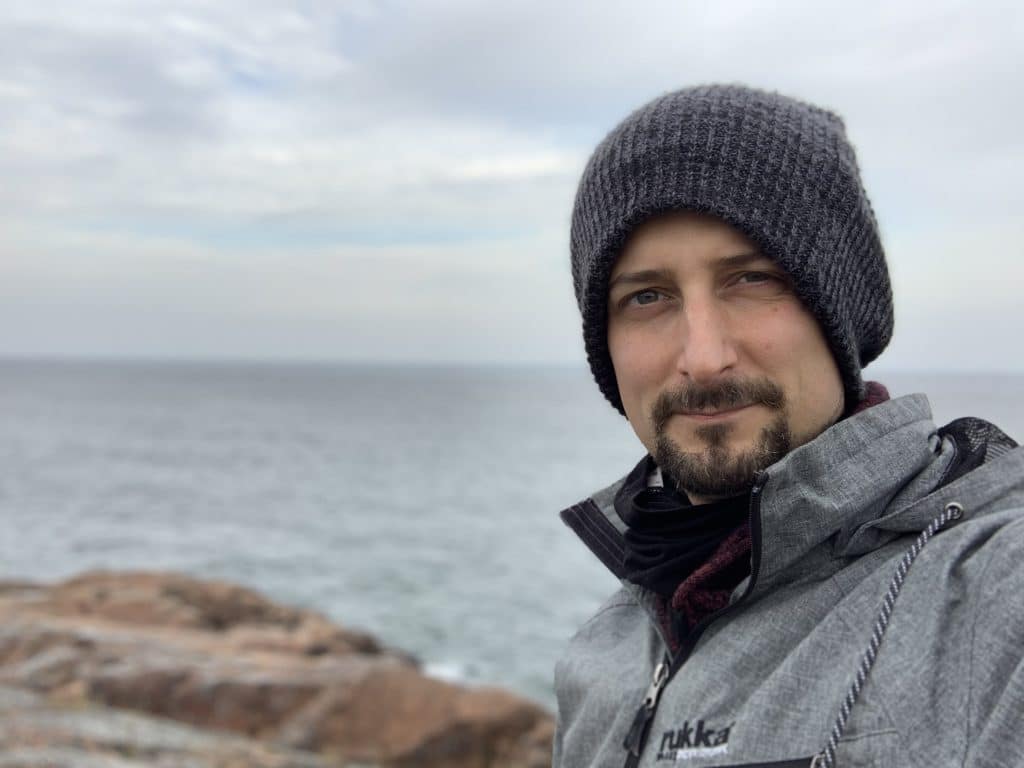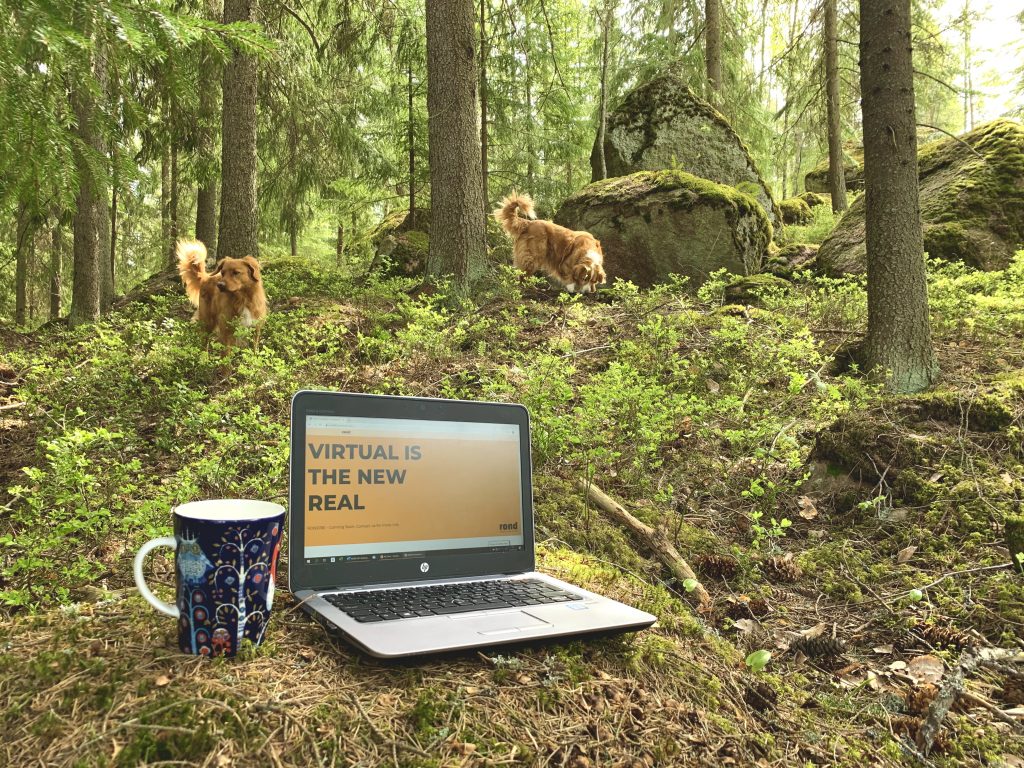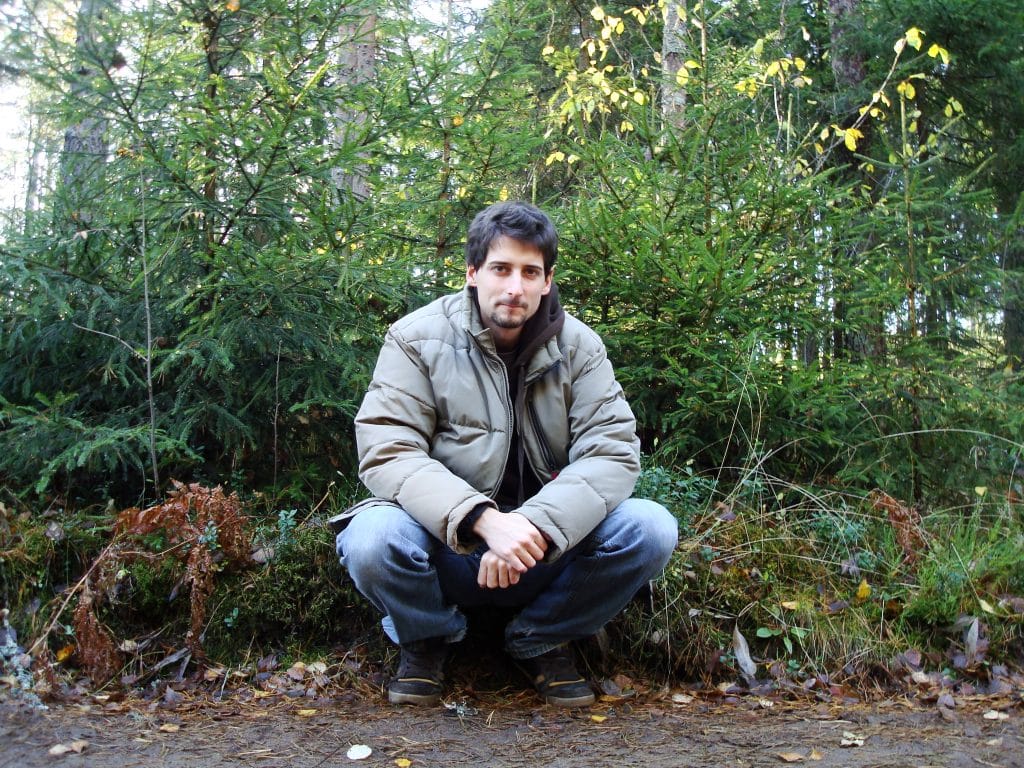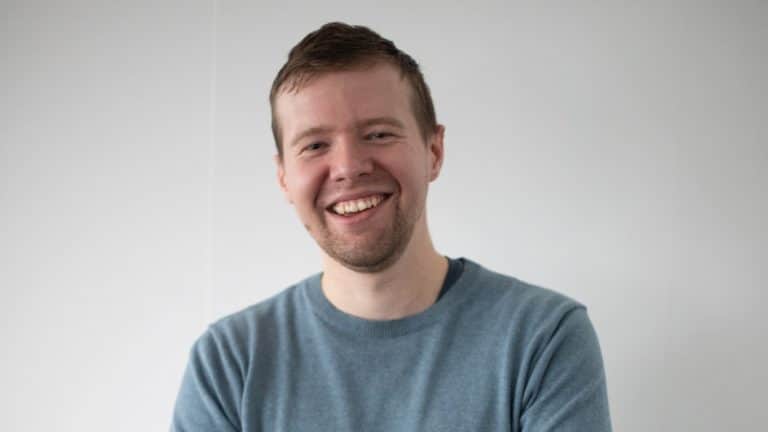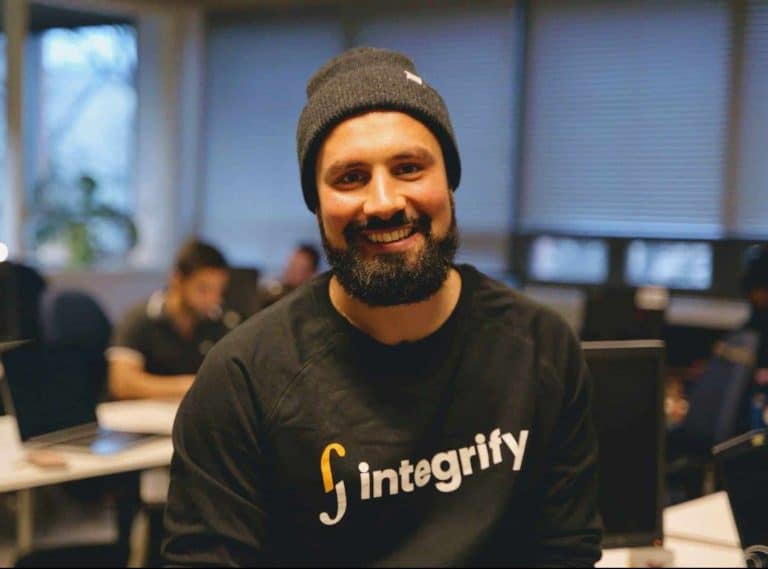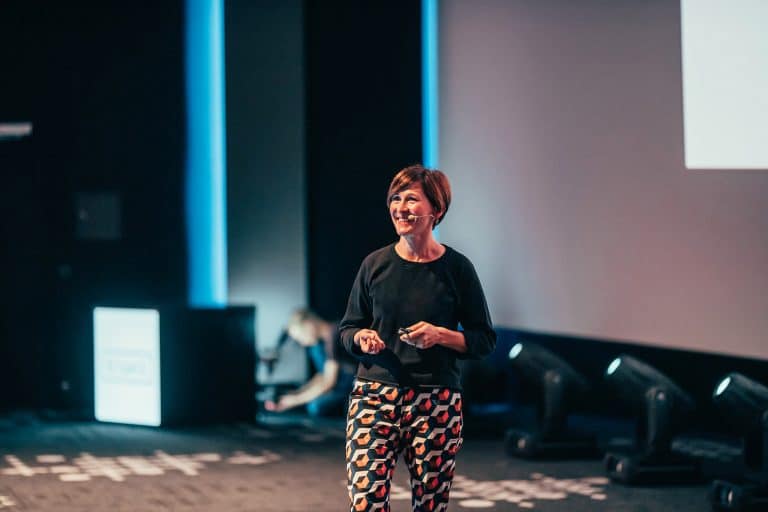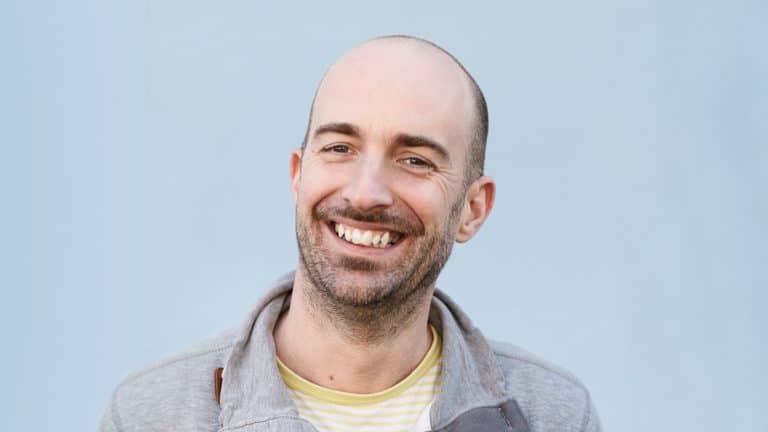Learn to adapt and stay true to yourself
I grew up under the Mediterranean sun in a popular Finnish destination: Alicante. I did not live in the city but 7-8km away in Cabo de las Huertas, a residential area very close to the sea. The best 3 words to describe my childhood and teenage years are sun, friends, and freedom. And to be frank: what else would I need?
However, my parents are not originally from there: my dad is from the North-West of Spain, León, and my mum is French, from Le Havre. The fact that I am half-French and studied in a French school did have an impact on me. I know that other people with double nationalities can feel like they are 100% xx and 100% yy (like I would feel 100% Spaniard and 100% French), yet that was never the case with me. I always felt something was off compared to my Spanish friends, the kids I would play with after school. It was not always pleasant since I would sometimes feel out of place in either country. But it was a part of life that I came to terms with it pretty fast: learn to adapt but stay true to yourself. I think it also shaped the part of me that is fascinated by communication and human behavior.
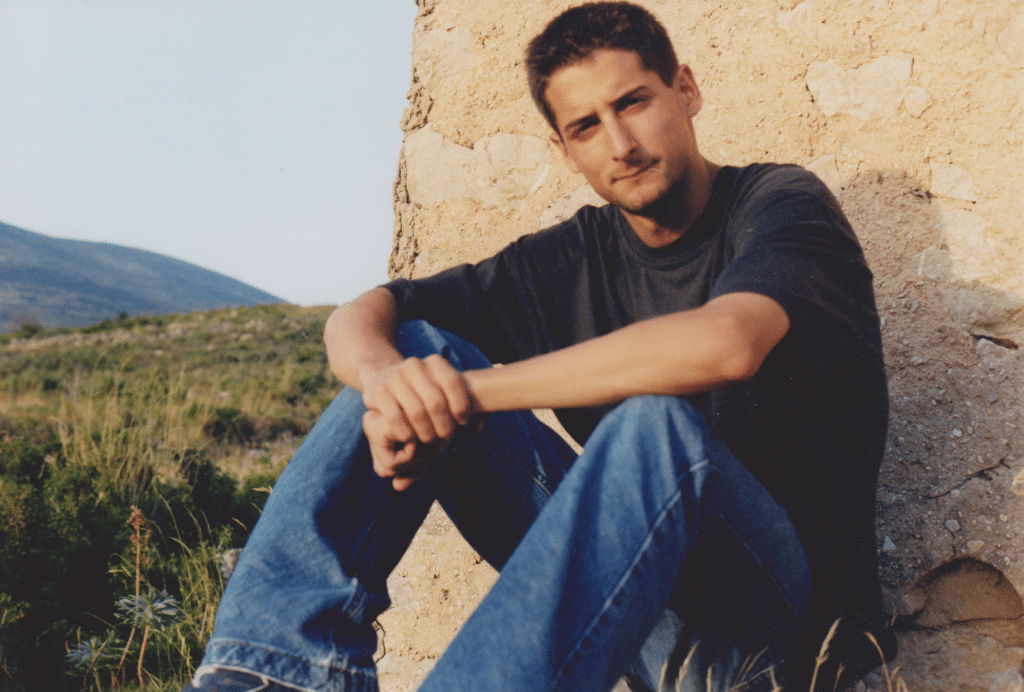
When I was 16 years old, I was supposed to go for a 2-week internship at a company. All students had to. We did some personality tests to see which professions or fields of work would be the best match, and I got Sociology. I thought it was pretty spot on. I liked “studying people” (there you go, that will be the creepy quote of this interview!) and loved extending the study to its root causes, past, context. I loved History, Geography, and I was definitely also into Arts and Humanities. But, here’s the problem: the school did not have any companies available for an internship in “sociology”. Therefore, they decided to follow a comprehensive methodology to find the nearest field that would match my personality test criteria: my teacher looked at me and said, “you, there’s nothing for you, pick another field.” All right! I chose marketing.
Alright, so I chose marketing
I have always loved writing. For me, for others, for whatever purpose, for the sake of it. I guess it was the fact that my parents have a house full of books and my mum has always been so fond of cinema that had something to do with my love for storytelling. Also, friends used to praise me for my humor and creativity. So, marketing seemed to be the perfect landing spot. Again, I was 16, and for me, marketing was writing commercials for Coca Cola. What could go wrong?
Actually, nothing. Yet. I enjoyed my internship very much, and two years later, I decided to take on a Bachelor’s degree at Universidad de Alicante in Advertising and PR. That’s the whole degree, they somehow made 4 years out of that. Of course, they had to fill in with other things, which was why we actually did study the Industrial Revolution and the Second World War during the first year. People were livid, but I loved it. Those 4 years at University were extraordinary, both socially and academically. You know you have studied the right degree when you don’t always like the assignments or teachers but when you eventually find yourself studying for the final exam, you realize you have always enjoyed each course’s scope. In reality, it took me 5 years to graduate. I took the 5th one as Erasmus and somehow landed in Finland. That might be a story for another time. Nevertheless, it was the best decision of my life. I’ve been here 14 winters (after the first 4 years, you start to count it in winters) and kept looking forward to many more!
I used to have no contact with entrepreneurship and I thought I needed stability
When I was growing up, I had no contact with entrepreneurship. I did not think much about it, really. So, when I decided I wanted to stay in Finland, the single clear consequence was that I needed to get a job. Through some contacts in Spain, an idea crossed my mind to start doing something like importing food, opening leads for second residence real estate in Alicante, etc. But I was actually looking for stability, so I decided to go on a holy quest to land a job.
I had been so confident that nothing could go wrong by studying marketing. Now comes the “yet”: there was no job for me in marketing in Finland without Finnish or Swedish skills! So, again, I had to adapt and choose the nearest field available. I speak 3 languages, fairly outgoing, good at reading people and communicating. Could international sales be a perfect fit? Yes! International sales. I finally got a job (kudos to FogScreen and the defunct BGF) and was happily employed and able to stay in the country.
I knew that I could do more than that
After a while, I started feeling a bit trapped, which was strange. FogScreen was giving me the two things I thought that all salespeople would want the most: we did not have stability, we did not have a perfect product, it was a challenging sales process during the financial crisis, but I had absolute freedom (and I mean it: I was 100% remote) and a good incentive plan, plus great salary. Still, it felt like I could do more than that or that I needed to do something different to be fulfilled.
I had learned by then that Finland is a country with many entrepreneurs. There were lots of small companies doing something interesting. And I wanted to help them. I was focusing all my energy on a single company when I could be helping so many more. I could be exploring new products, solutions, and people. On top of that, sales was not the only thing that I knew I could do—with or without Finnish or Swedish, I finally believed I could help companies with their marketing. So, I quit my job and decided to give it a go.
Despite being a rookie without knowing the local language, I gave my earnest shot
Thinking back, I believe all the people surrounding me were supportive, which was fantastic, and that gave me lots of confidence. As for my family, I had already proven I could land a decent job in Finland despite being a rookie and without knowing the local language. I guess they finally accepted that I could at least give it an earnest shot.
I remember looking for advice at my local Posintra office in Loviisa. That was a memorable experience! First of all, they helped me polish my application for “starttiraha” (a small allocation of money for new entrepreneurs). Second, it was a wake-up call for me. I had to think about where my income would really come from 4 months after quitting my job, who I wanted to target, and pricing. The thing is that it’s all right to try out different kinds of stuff, but you also need to take your time, your focus, and income into consideration. Or else, you are going to have a bad time.
I decided to work with an accountant in Loviisa because I wanted to support local businesses and hoped to find someone who could guide me through the most basic and probably stupid questions. Finance and Accounting were a new world for me. Luckily, I found the perfect person – an accountant who generously gives me advice and even cheers me up when I have bad stretches (hi there, Taina!).
I could never start taking it seriously until cutting my salary entirely out of the equation
Many weeks went by from my first conversation with Taina and the Posintra advisor. By then, I still received my salary and was testing out the waters. I did a bit of networking, asked around, and looked for businesses that could be complementary to mine, approached a few potential customers. However, I immediately realized that I could never start taking it seriously until completely cutting my salary out of the equation. So, in the summer of 2014, I cashed in my pending commissions, took a 3-week holiday to Spain with my wife, and came back ready for action. I asked a friend to help me with all the paperwork, and hey ho, let’s go!
Everybody says you need to have an obvious answer when being asked what to do. The truth is, I started my company to figure out two things. The first, if I could make a living on my own. The second, to find an answer to the “what do you do” question. Even after discussions with Posintra, I knew that my entrepreneurial journey would be experimental and without a safety net. Make it or break it.
So, what do I do? – All of those things!
So, what do I do? Sales. Marketing. Content creation, strategy, video production? All of the above. For the first 2 years, I tried many things, including translations, reviews, copywriting, video (sales, script, film, even being in front of the camera), consulting, cold calling, account managing, and so on. I always managed to find clients to work with while making a living and having fun along the way. Yet, I could not give a one word answer to the question “what do you do?” All of those things!
I was struggling because of that. I could define any of my clients’ businesses in one sentence but not my own. In the end, it turned out that the solution was right in front of my eyes the whole time. I did not need to choose. I was finding clients, doing a good job, being pretty happy and making a living. Nothing wrong with that! There is no need to jump inside a box only because others are uncomfortable with uncertainty. It took me almost 3 years to come to terms with acknowledging that I work in the broad fields of sales and marketing, and I have a fantastic pool of talent available to handle both small and big projects. The real question is not the one people kept asking me, but the one that I have been asking my clients: “How can I help you?”
Joining ROND meant a change for me
In 2017, I cold-called a guy from a company. “This dude might need some videos,” I wondered after a very qualitative assessment of Googling, and “he seems like a relaxed person”. I did have an idea in mind, and the call went well. And I produced a video for him. We stayed in touch and got along after that. He had some cool ideas for a new business that he was planning to start. That guy was Sjoerd Postema and that company was ROND. I was all-in, lucky to be on board, and became a co-founder. We’ve gone a long way together, and we’re just getting started. If you don’t believe me, check what we are doing with virtual events!
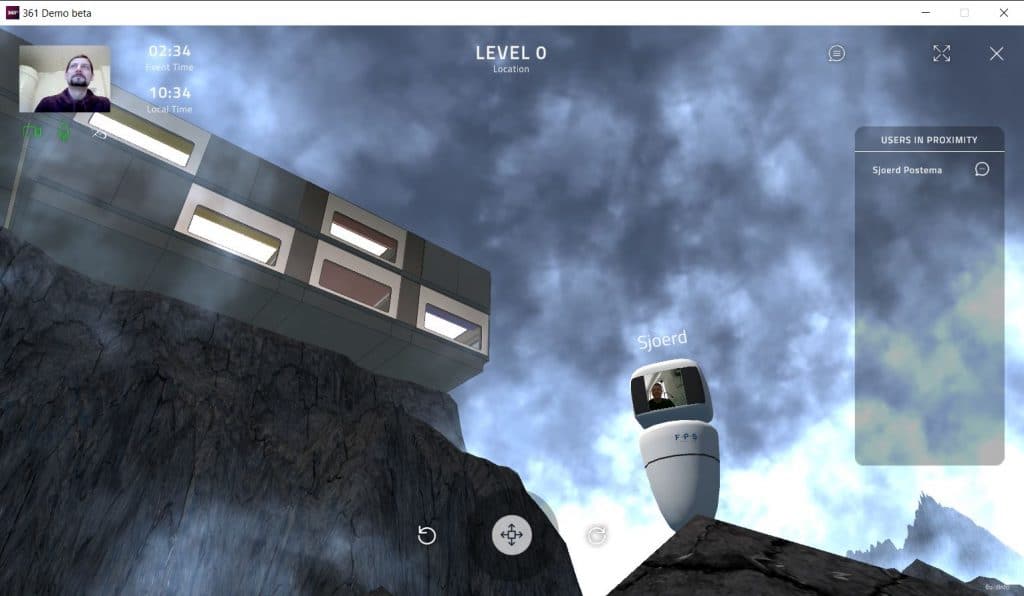
Joining ROND meant a change for me. It was no longer about my company and a pool of talent around, but jumping into team dynamics and being accountable in a whole different way. It meant sharing the potential but also the responsibility with my fellow co-founders. It was a new setup. Luckily, both Sjoerd and Huong have always made life easier for me. They quickly understood that I needed to work with lots of freedom, and allowed me to work 100% remotely since the beginning and accommodated that into their plans. They knew each other from before but not me. Yet, they trusted me. They empowered me. And, an empowered entrepreneur is unstoppable, right?
Also, ROND allows me to be myself and dive into a myriad of different tasks: sales, social media, video, marketing… Just what I wanted. And I have good fun along the way! Even through the most challenging times, when there is too much work, or things don’t go our way, I feel privileged to be challenged and pushed forward in many directions. It’s hard, yes, but give me “hard” and “challenging” any day. I did not become an entrepreneur to get bored.
There are a thousand doors at your reach waiting to be knocked on
I am a stubbornly hopeful person. No matter what is happening in the world, in my life, or my business(es), I firmly believe there are a thousand doors at my reach to knock on and find new opportunities. An entrepreneur will have to adjust his vision from what he/she puts on papers when registering the company, to when reality finally lays its cards on the table and clients say “no” (whether that means “no” or “not now,” “not like this” is a different question…). You have to be relentless but flexible, determined and hopeful, optimistic and solution-oriented. And again: always be willing to knock on those doors. No one will do it on your behalf. Someone behind those doors might be willing to work with you, collaborate, or give you a lovely piece of advice.
Pick up the phone, call, make that intro happen, and come what may
Until now, I might have done more business out of cold calls than personal introductions. Because I did not always have someone to introduce me to a particular company I wanted to work with for whichever particular reason. So, I would pick up the phone, call, introduce myself, and tell them why I thought we could be an incredible match. It gets easier, of course, since after 14 winters in Finland I got to connect with lots of different people. However, if I want to work with someone because they inspire me, or I believe I can solve a problem, or simply because I think there is a story they might want to hear and work on, I will just reach out. Being a bit bold, passionate, and having a big smile on your face during the call can already take you quite a long way! The quote goes, “you miss 100% of the shots you don’t take”. Take the shot. And, please, don’t tell me you “sent an email”: pick up the phone, call, make that intro happen and come what may.
It is not a chore. It is an adventure!
I am a very sales-oriented person. I do believe that “sales” is not only a word with a tarnished reputation but it should actually be significantly more used in certain entrepreneur circles. Long story short: do yourself and your business a favor, pick up the phone, and start selling. It’s not a chore: it’s an adventure. You should feel excited when dialing a new number, butterflies in your belly, imagining the potential of meeting someone who can turn out to be a great client. That would be an extraordinary, unexpected journey, and, even better, an excellent person to put in your life. It has happened to me more than once. Of course, it’s not always going to be an easy and pleasant road, but remember about being a stubbornly hopeful person?
My second job in Finland, back in 2008, was a heavy cold-calling position. We were calling C-level executives all over the world. I was so naïve and did not notice that it was the nature of the job before joining. I thought I was jumping into account management. I hated every second of it. Boss would come through the door and give you simple instructions: “pick up the f*cking phone.” It did not go well with my personality: I was a cold caller before that, sure, even doing volume, but in a much softer environment. This was closer to telesales. I tried to make it work but constantly felt out of place. I was also becoming something I did not want to be – a wannabe-cocky-broker-cold-caller if that makes any sense. I later found a better job as a sales manager, back with my previous employer, and moved on. In retrospect, that was an extraordinary sales school and it did wonders for my performance. I had gained sharper tools to open and learned to focus on closing. Listen to the client, yes, acknowledge the needs, yes, be creative and solution-oriented, yes. But close. Close. If you don’t like the end of this paragraph don’t start your business alone: find someone who likes it first.
Every single client is unique to me
You might cherish your first client more because they were the first. The truth is, every single one is unique to me. The fact that we spoke and reached an agreement on how I can contribute to that company’s development is the kind of feeling you chase when you start your journey. Postponing the calls, emails, and negotiations out of fear and rejection is a disservice to you and your company.
Freedom does not always mean doing what you want
Freedom is a crucial aspect for me. It does not always mean doing what you want. That’s great, but not always possible. For me, it means that even when I have hectic days or weeks, the fact that it’s my company and I ultimately sit at the wheel makes me feel free. Entrepreneurship is like paving my own road: I know I have to continue paving -too much cross country and mud would exhaust me. I also know that I do need to coordinate and rely on others to get enough stones, flatten the ground, and put the stones in place. But, ultimately, I decide the pace and direction at which I build it.
Your goal is not to be busy 24/7 but to be happy along the way
Speaking of pace, I don’t believe in 24/7 work and availability. Even when you love what you do, you need to step aside to breathe, learn, enjoy. I have been quite firm with my time, sticking to regular business hours. Granted, I tend to start a bit later (I wake up early but take a long walk with the dogs in the woods) but often do a night shift: a perfect time for copywriting. Also, I do not let anyone take for granted my evenings, weekends, or holidays. Plan your projects properly and allow yourself time to sleep and rest. If anybody pressures you into working more (“entrepreneurs need to live and breathe their business!”), ignore them. It’s all about efficiency and productivity, not the cumulation of hours. Yes, the first months and years might be more challenging since you are learning to handle new things for the first time, like legal, accounting, etc. But don’t let that become your new routine. Your goal is to be happy along the way, not busy 24/7, and sleeping only 2 hours per night. All blades get dull if you don’t sharpen them often enough.
Take it easy and put a smile on your face
If you want another tip to stay in good mental shape: just take it easy and laugh! I once showed up dressing in a full-body pink elephant costume to one of my partners’ offices. That was a good day! I pretty much always try to laugh with whoever is around when there’s a chance. And if the chances are not given, I’ll still give it a try. I don’t care if it’s an internal meeting or an important client call. You are dealing with people, you are touching their lives, and laughing is the simplest way to remind ourselves that we are, after all, just trying to stay happy and have a lovely week, month, decade. Your clients’ problems might be challenging, the negotiation might be tough, and the day might have been long. Don’t take business too seriously. You are going to perform even better with a smile on your face.
Make your own decisions, your own mistakes, and enjoy the fact that you can make both
If you’re thinking of starting your own adventure, I’d suggest you question all of the advice you will receive, including this very interview. Some will tell you to have a cast iron business plan; others preach you need to work 24/7. Some might tell you not to start alone, and some others the exact opposite. Question the prevalent business mantras and all advice received, to some extent. It can be tiring, but it will force you to understand and accept who you are, what your business is, who your buyer might be, and how to take it forward based on the three previous questions. There are tons of smart people out there, sharing insights and advice. You are the one at the wheel. Make your own decisions, your own mistakes, and enjoy the fact that you can make both!
There is a fine line between flexibility and instability
I don’t believe in motivation. It’s amazing the days you have it but life, business, needs to revolve around discipline. If you put your mind and your heart into a project, you will need to work for it, be persistent and keep moving forward even when, especially, you are not motivated at all. This is crucial because entrepreneurs translate their very own visions and dream into an actual company, a business. The first steps are always fascinating. The first steps are always exciting. Everything is new, and there is so much potential ahead… It’s all fun! Then you realize the market is different from what you expected, pricing is a problem, the value proposition is unclear, or whatever big or small hurdles start blocking your way. The motivation might plummet. But you cannot slow down. You have to be disciplined enough to sit in front of your computer, meet people, or do whatever it is that needs to be done.
Also, beware of contradictions and be ready to face them. We all have contradictions in our life. They can be in our way of thinking or our way of working, living, acting. Some are subtle, and some might be obvious. Some are due to a bad day, others due to a change in life. Here is one from this same interview: I am talking about freedom and resting, but rarely take long holidays. However, I can guarantee you that I feel completely free and relaxed. Go figure! Contradictions happen because they allow us to grow, learn, and change our minds. So, whether launching your business, talking to clients, moving forward, remember we are all people, and, at a micro-level, sometimes unpredictable and variable. Cut the others and yourself some slack when there is a change of direction. Sometimes it might feel like there is a fine line between flexibility and instability. Learn to walk that line.
Listening and learning is an introspective journey
As Sjoerd said during his interview, be yourself. Being yourself does not mean not to evolve. You will grow as you move forward, and some people change more than others. But don’t play a role when you are out there. Don’t put up a façade. You’re only going to live once (as far as I know!), so you might as well be true to your essence, even if it changes over time.
Huong also had a fundamental piece of advice: listen and learn. There is no personal and professional development without that. Remember that listening and learning does not only apply to what other people have to say. It’s also an introspection journey. In my case, every six months, I take one night to review what I did in the past 6 months (in early July) and 12 months (around New Years’). Based on that, I update my road map, as tentative or definitive as it might have been for that given period, and figure out what mistakes I made and the possible milestones I hit. In this instance, learning is not only by contact with others, which is critical but also to take the time to learn about yourself and your path.
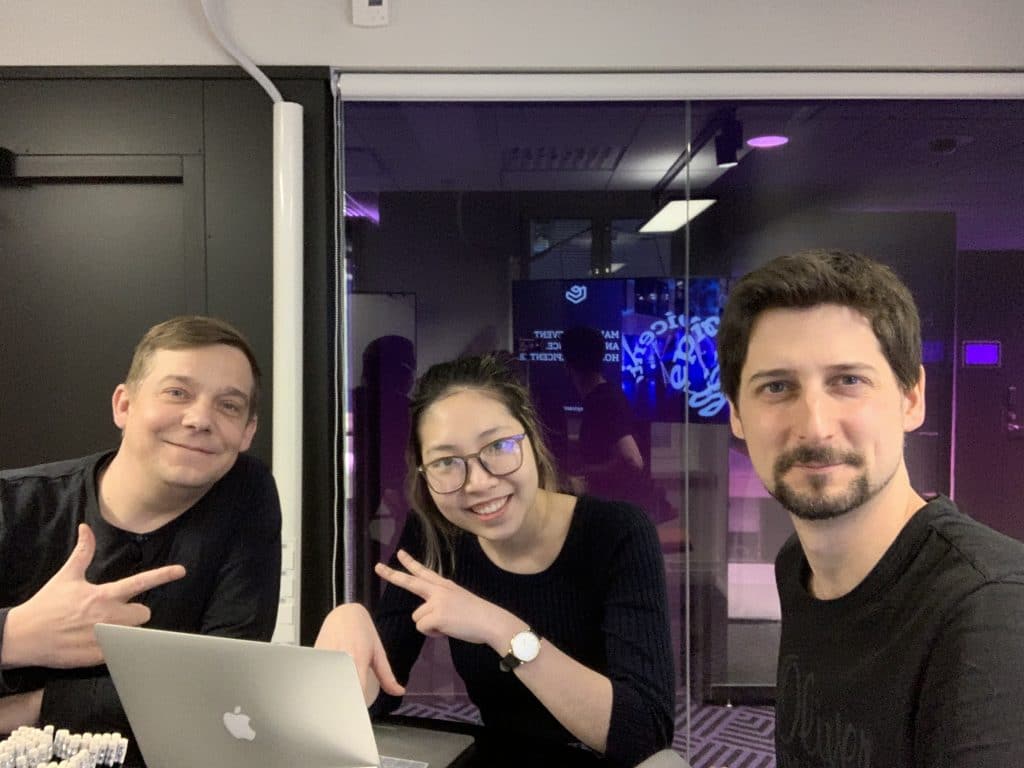
Final words? When all is said, and the rest is to be done: get out of your comfort zone. Be scared. Face those fears. Improve. And pretty, please with a cherry on top: pick up the f*cking phone. Trust me: it won’t be incompatible with you being happy or having fun along the way. Quite the opposite!


